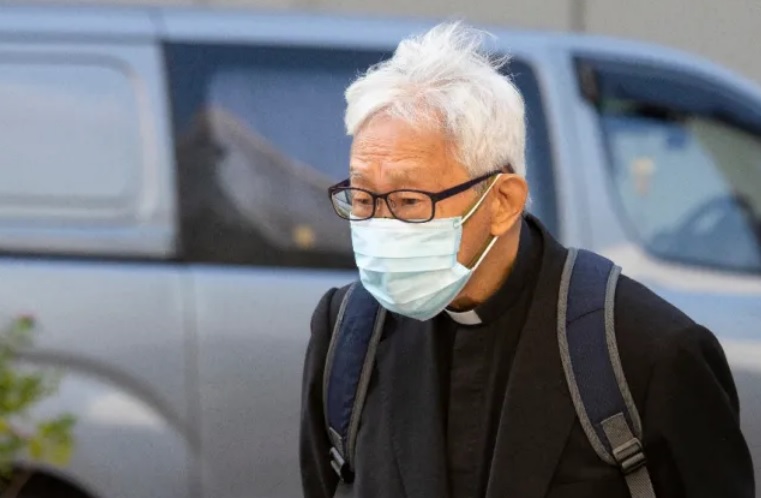The Sept. 19-23 trial will be conducted in Chinese with the closing arguments in English, HKFP reported. Without the national security law indictment, the defendants could face only a fine.
Cardinal Zen offered Mass after his court appearance in May and prayed for Catholics in mainland China who are facing persecution. “Martyrdom is normal in our Church,” Zen said. “We may not have to do that, but we may have to bear some pain and steel ourselves for our loyalty to our faith.”
Hong Kong is a special administrative region of China with its own government, and its citizens have historically enjoyed greater freedom of religion than on the Chinese mainland, where religious believers of all stripes are routinely surveilled and restricted by the communist government. But in recent years, Beijing has sought to tighten control over religious practices in Hong Kong under the guise of protecting national security. In 2020, a sweeping National Security Law came into force, criminalizing previously protected civil liberties under the headings of “sedition“ and “foreign collusion.”
Millions of citizens of Hong Kong, including many Catholics, have in recent years participated in large-scale pro-democracy protests in Hong Kong, which came to a head in summer 2019. Catholic pro-democracy figures such as Cardinal Zen, media tycoon Jimmy Lai, and lawyer Martin Lee have all garnered media attention for their arrests at the hands of Chinese authorities.
A Hong Kong priest told EWTN in April that the CCP is using ideological tactics such as re-education and propaganda to chip away at the freedom of religion in Hong Kong. A Reuters report from late December documented an October 2021 meeting at which Chinese bishops and religious leaders briefed senior Hong Kong Catholic clergymen on President Xi Jinping's vision of religion with "Chinese characteristics.”
The Vatican has shied away from public criticism of the crackdown on democracy protests in Hong Kong since it first entered into a provisional agreement with China in 2018. That deal was meant to unify the country's 12 million Catholics, divided between the underground Church and the Communist-administered Chinese Patriotic Catholic Association, and clear a path for the appointment of bishops for Chinese dioceses. Despite the deal, persecution of the underground Church has continued and, according to some, intensified.--CNA








Total Comments:0